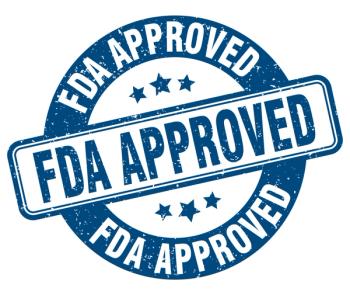
R.Ph.s give mixed reviews to Prilosec OTC switch
What R.Ph.s think of Prilosec going over the counter.
SELF-CARE
R.Ph.s give mixed reviews to Prilosec OTC switch
AstraZeneca's Prilosec (omeprazole) may have won the blessing of a Food & Drug Administration advisory panel to go over the counter in an overwhelming 16-2 vote, but pharmacists have mixed reactions about whether the purple heartburn pill should be switched.
At press time, 918 respondents had taken an Instant Poll on Drug Topics' Web site, which asked, Is it a good idea for Prilosec to go OTC? Fifty percent gave thumbs-down to a switch, 48% voted in favor of it, and about 3% said they didn't know.
Jerry Jackson, R.Ph., at CVS, Spartanburg, S.C., said, "My gut feeling is that this is another joint venture between the manufacturer and the pharmacy benefit managers. Remember, this drug was not approved for long-term use except in the treatment of Zollinger-Ellison syndrome a few years ago. It is also close to patent expiration time, and the PBMs and insurers would save a bundle by not having to pay for an OTC."
Louis Ferri, Pharm.D., South Jersey Health System, had mixed feelings. "Many people will definitely benefit from this big gun, but at a premium cost that is not covered by insurance," he said. Still, he thinks this OTC switch is a good opportunity for patients to consult with pharmacists.
Bernard L. Izes, R.Ph., CVS, is concerned that omeprazole can be dangerous if not taken correctly. "Prilosec potentiates many drugs, including Valium, Dilantin, and Coumadin," he said. "These drugs are used often and are powerful. There are many other drugs that must be monitored when taken with Prilosec. The adverse reactions include headaches, diarrhea, dizziness, rash, constipation, cough, and back and abdominal pain. Keep in mind, people buying this OTC will think that if one capsule is good, two capsules would even be better. Many people will get sick and some perhaps will die, before it is taken off OTC."
James Zelch, R.Ph., at Eckerd in Florida is in favor of an Rx-to-OTC switch for Prilosec but believes the price should be reduced. "The prices our senior citizens have to pay for drugs is atrocious. The drug manufacturer should be lowering the price of the brand product when the patent runs out. If you had an exclusive patent on items as they do for 10 to 17 years, you've made your money and recouped your investment 10 times over. Do they reduce the brand price? No! They double and triple it."
Randy Skirvin, D.Ph., Med-Rx Drug, La Mesa, Calif., said his endorsement of OTC omeprazole is dependent on safety and cost savings. "Patients may lose their third-party coverage due to OTC status, but coverage of a PPI [proton pump inhibitor] is generally lost after eight weeks of therapy anyway." That may mean an increase of out-of-pocket costs if therapy is to continue for longer than eight weeks. What's more important, he said, is safety.
"The literature tells of adverse events in lab animals using ridiculously high doses," said Skirvin. "Omeprazole [and other PPIs] have an excellent safety record and should definitely be considered for OTC status."
Darran L. Russell, R.Ph., Med-Rx Drug, said, "I would urge caution and also the use of low doses if Prilosec goes OTC. Most therapy with Prilosec is recommended for four- to eight-week periodswith four-week extensions." Omeprazole inhibits gastric acid and may alter the bioavailability of drugs dependent on a certain gastric pH for proper absorption, he said.
Atrophic gastritis has been found occasionally in patients on long-term omeprazole therapy, Russell said. "As a wellness pharmacist and diabetes weight management counselor, I'd recommend inclusion of a nutrition education leaflet on the dangers of overeating and being overweight. In particular, I'd include guidelines about combining better food choices and stress management techniques to reduce the need for self-medication for reflux, etc. The combining of refined carbohydrate and starchy carbohydrates with protein and saturated fats, especially at night, causes a lot of grief in the general population."
Nancy Lee Sipco, R.Ph., CVS Pharmacy, Painesville, Ohio, said, "I don't think there will be too much of a problem with the OTC switch as long as the indications and warnings are listed properly." She questioned, "Would it be available in a lower dose, like Zantac and others?"
Where does the American Pharmaceutical Association stand on the issue of an OTC omeprazole? APhA "recommends that the agency consider the real-world use of omeprazole magnesium in the OTC environment, existing OTC products available for heartburn, the risks and benefits of increasing access to the product, and the ability of consumers to appropriately select and use the product without a learned intermediary. APhA supports the transition of this product to OTC status, pending the outcome of this review by the FDA."
Sandra Levy
Sandra Levy. R.Ph.s give mixed reviews to Prilosec OTC switch.
Drug Topics
2002;15:66.
Newsletter
Pharmacy practice is always changing. Stay ahead of the curve with the Drug Topics newsletter and get the latest drug information, industry trends, and patient care tips.























